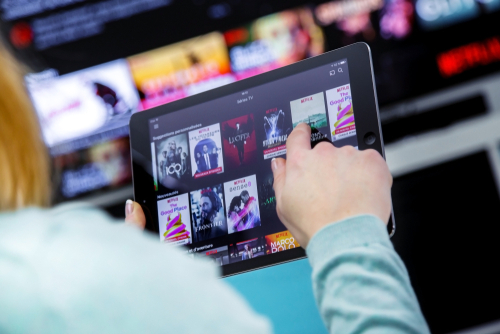AI is changing the presentation of search results for both users and advertisers by creating a more curated experience with images and AI-generated stories. Here is a look at the key AI enhancements to search from Microsoft (NASDAQ: MSFT) and Alphabet (NASDAQ: GOOGL).
Is the growth in Alphabet’s Google Search sustainable?
Alphabet has dominated the digital advertising revenue space through the strength of its Google Search. Alphabet generated $224 billion in ad revenues in FY 2022 with $162 billion coming from search. Looking ahead, analysts expect Alphabet’s ad revenues to grow more than $30 billion to reach $255 billion by end of FY 2024, a projected increase of over $120 billion since FY 2019.
Figure 1: Search revenue expectations for Bing and Google

The importance of images: Google and Microsoft’s Bing generate advertising revenue via search through user impressions and clicks. Speaking at the Google Marketing Live conference on May 23, 2023, Brandye Sweetnam, Director of Product Management, Merchant Content & Discovery at Google, highlighted that images help drive an increase in impressions and clicks. Sweetnam stated that offers with more than one image see a 76% increase in impressions and a 32% increase in traffic, making it a very valuable feature.
Bing’s new search capabilities: When compared to Google’s $187 billion in advertising revenues from search expected by the end of FY 2024, Bing is projected to generate a mere $13 billion in advertising revenue by end of FY 2024. However, Microsoft appears to be leading the integration of AI-generated results into its search. Bing users are currently presented with more images, categories, and AI-generated stories, when compared to Google. With Bing’s new AI-enhanced search, could Microsoft start to take some revenue share away from Google and see stronger-than-expected growth over the next two years?
Figures 2 & 3: Based on searching for “Hawaii vacation” Bing surfaces a full palette of images compared to Google
Sources: Bing.com (June 8, 2023) and Google.com (June 8, 2023)
Figure 4: Bing’s AI-generated story for the “Hawaii Vacation” search query

Source: Bing.com (June 8, 2023)
AI “coming soon” at Google: It is also worth noting that Bing’s AI lead in its search experience for users may be a threat to the advertising revenues Google generates. Google’s focus on adding images and AI-generated stories to its current search results represents a critical area going forward to both maintain its stronghold in the space and continue to grow its advertising revenues. Increasing the number of images in Google’s search results, according to Sweetnam, will be a key driver in increasing user impressions and clicks, which are key to securing advertiser dollars. Images will likely play a critical role for Google both to remain competitive in search over the long term and to generate the advertising revenues that analysts are expecting. While Bing’s AI-enhancements are live now, these new capabilities at Google are “coming soon” and not yet in production for Alphabet’s end users.
According to Vidhya Srinivasan, VP of Search Ads and Ads on Google Experiences, at the Google I/O conference in May 2023, new enhancements in generative AI will make search smarter and a lot simpler to navigate. Based on the experiences the user searches for, ads will be placed within the list of products. Google’s new generative AI capabilities in search will create more opportunities to show the user content that is highly relevant, according to what they search for.
Figure 5: Google’s AI-generated story capability is “coming soon”

Source: Google Marketing Live (May 23, 2023)
In addition, the context is carried over from question to question, so both organic results and ads understand the current query, but also remember the previous set of contextual questions. In this case, the user is going on vacation in Maui, but then subsequently started looking for outdoor activities for her kids. Leveraging generative AI, search now understands the multiple levels of context and will customize and surface ads around the user’s queries. The ads are then matched to the search journey.
Also, in Google’s pipeline of generative-AI enhancements will be an ability to leverage text-to-image creation capabilities. The ability to automatically generate background scenery and images for search ads is likely to drive more impressions and clicks, which will be key to revenues. However, Google only highlighted at Google Marketing Live that these innovations are “coming soon” and did not give clear timelines. Microsoft has already integrated this text-to-image capability in Bing with its DALL-E partnership.
Figure 6: Bing’s Text-To-Image AI image creator is already in production

Source: Bing.com (June 13, 2023)
From now until these enhancements move to production at Google, does Bing have an opportunity to grab more consumers? Given the changes happening to a user’s search experience, could we start to see users switch to Microsoft’s Bing? Could Microsoft begin to take some of Google’s large share of advertising revenues?




